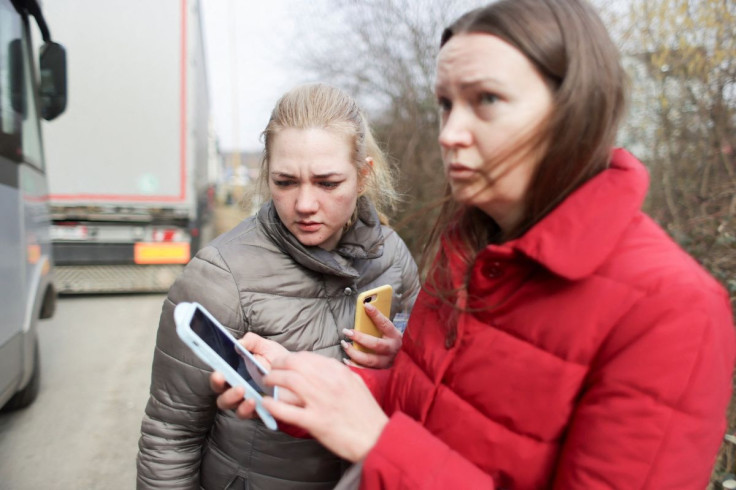French Professor Drives 1,200 Miles To Offer His House To Ukrainian Refugees

When Russia invaded Ukraine last week French professor Yves Gineste didn't think twice - he set off on a four-day drive to the eastern edge of Slovakia to offer his Perpignan house to refugees.
Bearing a cardboard sign seeking "One family for a house in France, travel and house free", he registered with a charity at Vysne Nemecke, a crossing on the Slovakia-Ukraine border.
A few hours later he was helping 26-year-old manicurist Nastia Kiselyova, along with a friend travelling with her daughter and niece, load their belongings into his camper van prior to heading back the around 2,000 km (1,200 miles) to southwest France.
On hearing of the invasion "I could not believe it," the 70-year-old, a professor in medical research who works six months of the year at Kyoto University and normally rents the Perpignan house out, told Reuters.
"I decided to go immediately...It's an emergency. And in emergency, we have to act, we have to respect our values. And my value is that we are brothers."
More than one million have fled Ukraine since Russia invaded on Feb. 24 and began shelling Kyiv and other cities, the United Nations said on Thursday.
Tired and struggling to process a welter of emotions, Kiselyova said her group waited at Kyiv train station for over eight hours on Wednesday before boarding a packed train to Uzhhorod, on the Slovak border.
"We heard shelling after leaving Kyiv, we were told to pull the curtains down so light was the train was not visible," she said.
She said she had left behind her parents, her father being military age and her mother employed as a nurse in a military hospital, and that her group had an acquaintance in Spain where they might try to travel on to from France.
But, as a non-English speaker, she worried about the prospect of finding work and fought back tears when talking about chances of getting back home."They are shooting at everything, playgrounds, schools. Not strategic objects, but houses, cars," she said.
© Copyright Thomson Reuters {{Year}}. All rights reserved.





















